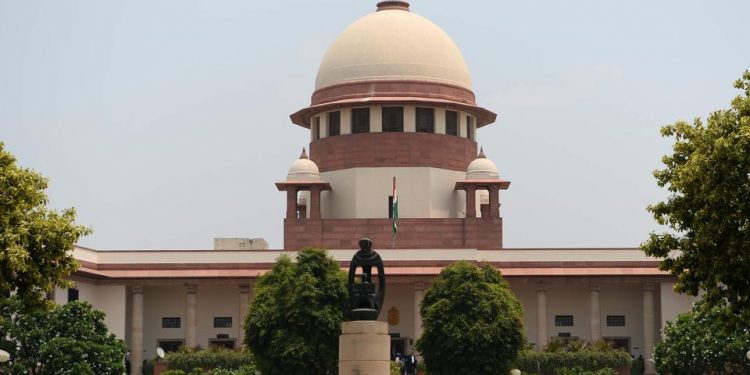New Delhi: The Supreme Court pulled up Wednesday the Uttar Pradesh government for ‘delay’ in identifying sex workers for providing them dry rations during the COVID-19 pandemic. The Supreme Court said there should not be any further delay as it is a ‘question of someone’s survival’.
The apex court, which directed all states and union territories (UTs) to implement its September 29 directions and ensure that dry rations are provided to sex workers identified by the National AIDS Control Organisation (NACO) and legal services authorities, told the counsel appearing for Uttar Pradesh that being a welfare state this matter does not brook delay.
“This is a matter which does not brook delay. It is a question of someone’s survival,” a bench headed by Justice L Nageswara Rao told the lawyer representing Uttar Pradesh.
“If you are saying you are unable to identify them even after four weeks then this shows the capability of the state. This looks like lip service. You tell us about the number of identified persons,” the bench, also having Justices Hemant Gupta and Ajay Rastogi, said. “Why should you delay this matter? We are a welfare state, don’t delay this,” the bench told the counsel representing Uttar Pradesh.
The bench was hearing a plea which has raised the issue of problems being faced by sex workers on account of the pandemic.
Senior advocate Jayant Bhushan, assisting the apex court as an amicus curiae in the matter, referred to the affidavit filed by Uttar Pradesh and said they are making efforts to give rations to sex workers without disclosing their identity.
Referring to the affidavit, Bhushan said around 27,000 sex workers are registered by NACO in Uttar Pradesh. As per the September 29 order, they have to be given dry rations.
The counsel appearing for Uttar Pradesh said they are in the process of identifying sex workers and most of them already have ration card and are being provided ration. The bench observed that the state should take assistance of NACO and the district legal services authority in this process.
Besides Uttar Pradesh, the top court was also informed about the affidavits filed by states including Maharashtra, Assam and Nagaland.
Bhushan, while referring to the affidavit filed by Maharashtra, said that eight district collectors out of 36 districts in the state have given report on distribution of dry rations.
When he referred to the quantity of dry rations like sugar and pulse which were distributed in different districts of Maharashtra, the bench said, “There is no uniformity in distribution.”







































